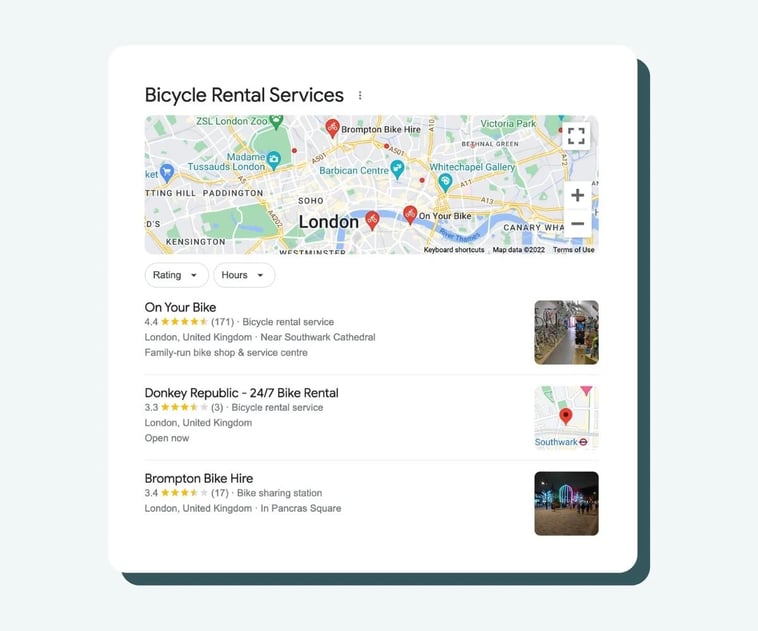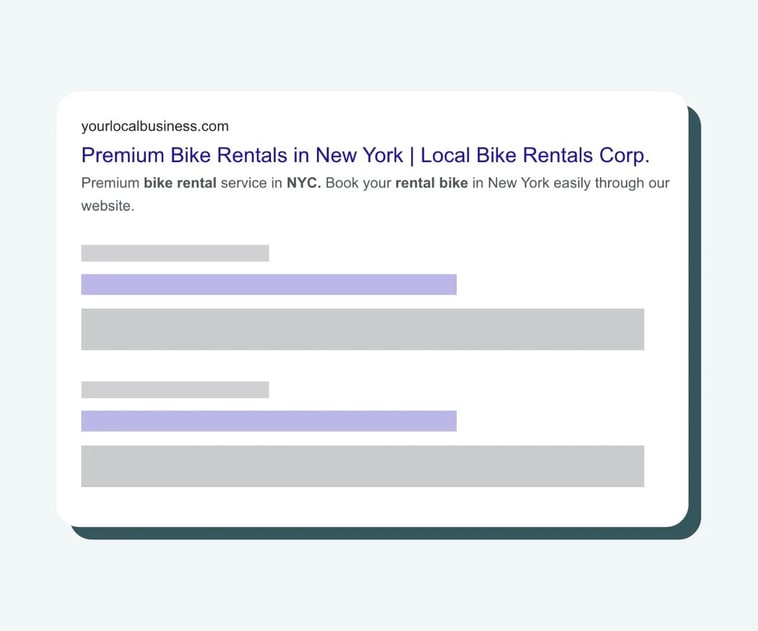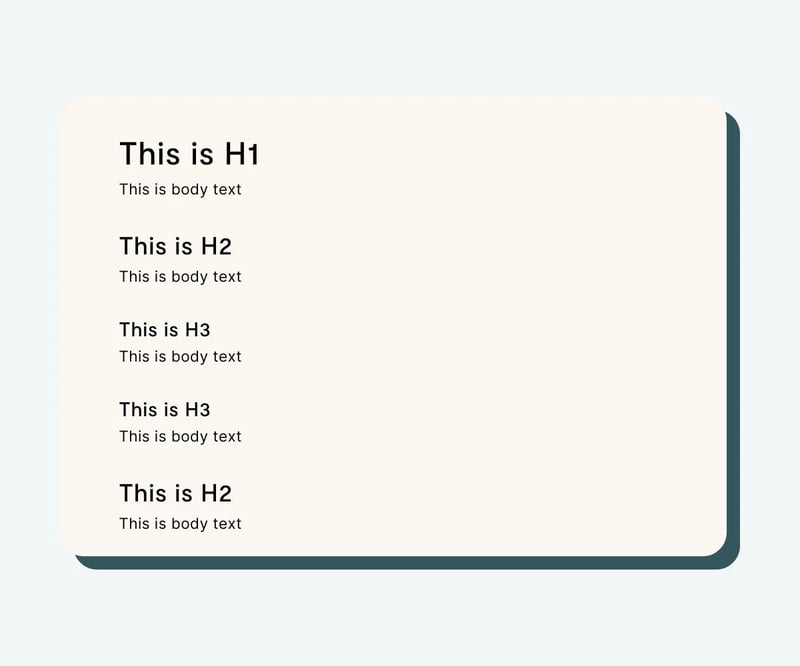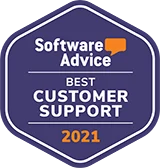Since its inception, the internet has progressively redefined the way people search for information and communicate with each other. One of the internet's most notable uses is web search, which enables users to search for any information they need with a few clicks or, increasingly, via voice search. In fact, online search nowadays is so prevalent that people make over 100,000 searches on Google every second. This translates to 8.6 billion daily (Internet Live Statistics, 2022).
Many businesses see online search as a significant opportunity to reach and acquire new customers. That's why SEO, or search engine optimization, has become an important marketing strategy for companies of all sizes, especially in e-commerce.
By optimizing websites and content for search engines, businesses can ensure their site shows up higher in the results. As Google dominates the online search market by handling over 90% of online searches globally, it makes sense to focus your search engine optimization strategy around the world's largest search engine.
This article will go through the basics of local SEO and give valuable tips to support you in building your local SEO strategy.
What is local search optimization?
The accelerating interconnection of the physical and digital worlds generates growing interest in local SEO. People search for information about local businesses, services, sights, and experiences online, even if they intend to visit the site physically. To reach more customers at the physical and digital channels interface, you should learn the basics of local SEO strategies.
Like SEO in general, local SEO aims to boost a website's online discoverability. However, the main difference is that in the case of local SEO, online presence is optimized to increase a website's visibility for a geographic area specifically. Therefore, any business with a physical establishment or area of service can benefit from local SEO efforts by using it to connect with local customers and relevant audiences nearby.
How does Google rank search results?
In short, when you are googling something, you're asking an algorithm to go through an index of websites and pages that answers your search and organize the search results based on relevance. Google uses various ranking factors on and off websites to form a picture of the content that Google thinks is the most relevant to people's searches and decides which pages to show first on the search engine result page (SERP). Search engine optimization is a process that aims to get your website to show up higher in the search results relevant to your business.
Here's a comprehensive list of the different ranking factors for those who want to dig deeper.
How's local SEO different?
Google is pretty good at recognizing when it makes sense to show people local results. The queries containing "near me" or "business + city" are apparent triggers for local search results. But even when you do not include the obvious signals to the search query, Google uses location to show you more relevant search results. Try, for example, googling something generic, such as "grocery store", at two different locations and compare the results. The same logic applies to any local business. Whether you run a sports equipment rental shop, a clothing store, or an event agency, if you have a local presence in a specific geographic area, make the most out of the searches happening near you.
Furthermore, you might have heard about SERP features. These are elements that appear on the Search Engine Result Page outside of the normal organic results (the blue links). SERP features are many kinds and appear on almost every Google search. More precisely, according to Backlinko, only 2.68% of searches go entirely without a SERP feature. The local Map Pack is one of the most common of Google's SERP features and appears on local searches. The Map Pack is the place to be for local businesses because of the prominence of the element above the normal organic search results.

Local search ranking factors and strategies for local businesses
Typically local searches indicate that the consumer is a little further in the purchase process. It is, therefore, vital that your business is visible at that moment when the customer is looking for a product, service, or solution to their current or planned need.
Local SEO is a laborious endeavor that requires some time and effort to be implemented. But knowing what affects the local rankings and where to get started will make the steps a bit more approachable. Thanks to Moz, we have a fairly comprehensive view of what influences the ranking of local search results. It is worth noting that local pack and normal organic search results have different ranking factors. You can compare the local SEO ranking factors below.
Local pack ranking factors
-
Google My Business – 25.12%
-
Link signals – 16.53%
-
Review signals – 15.44%
-
On-page signals – 13.82%
-
Citation signals – 10.82%
-
Behavioral signals – 9.56%
-
Personalization – 5.88%
-
Social signals – 2.82%
Local organic ranking factors
-
Link signals – 27.94%
-
On-page signals – 26.03%
-
Behavioral signals – 11.5%
-
Google My Business – 8.85%
-
Citation signals – 8.41%
-
Personalization – 7.32%
-
Review signals – 6.47%
-
Social signals – 3.47%
Source: Local SEO ranking factors study (Moz, 2018)
Now that we know what affects the rankings of local searches, it's easier to start optimizing the different factors. The following are the essential steps to building and implementing an effective SEO strategy for a local business website.
Claim and optimize your Google My Business profile
Google has a suite of tools and resources businesses can leverage to get started with local SEO. The most important of these is Google My Business, which allows companies to create a free business profile on Google.
As we can see from Moz's study, an optimized Google My Business Profile is pivotal in local SEO. It is the most crucial ranking factor for the local pack and a significant factor for organic rankings as well.
Start by claiming and setting up your Google My Business listing. This will give your business a presence on the search engine's local results pages and Google Maps. You can further optimize your profile's discoverability by completing it with as much information as possible and filling your business description with relevant business category and keywords.
Get backlinks from high-quality websites
Just like with regular SEO, one of the most important factors for improving your website's local search rankings is obtaining backlinks from high-quality websites. Backlinks are links from other websites that point to your own website and help build domain authority for your website.
The more high-quality backlinks you have, the higher your website will rank in search results. The best local link building opportunities depend on the industry, but here are a few generic tactics to attract links to your website:
-
Guest blogging for other websites
-
Submitting your website to online directories relevant to your industry (e.g., Tripadvisor, Visit XYZ sites, etc.)
-
Sponsoring or partnering with local events, non-profit organizations, sports clubs, etc.
-
Networking with local influencers, appearing on local news sites, and being active in your local community
Make your citations consistent
Consistency is essential when it comes to SEO. The consistency of the so-called NAP (Name, Address, Phone number) citations across the internet is a huge ranking factor for local businesses.
Google and other search engines rank results based on the site's reliability and relevance to a given search. If it repeatedly shows irrelevant search results, such as false business addresses or phone numbers, Google has its own reputation at stake. That's why it wants to ensure the relevance and reliability of the search results it displays to users. If your essential business information varies across the internet, it's a sign of unreliability, which isn't particularly good for SEO.
At the very least, make sure your website and Google My Business profile have the business name, address, and phone number citations up to date and written in the exact same format. Then make sure your social media channels and third-party sites like Yelp, Tripadvisor, FourSquare, and other pages you can control follow the same protocol. To update NAP citations on pages you are not in control of (e.g., local directories), you'll need to reach out to the web admins manually via email. To find and unify all the citations you are and are not aware of, perform a citation audit.
Once your existing citations are unified, you can start building more of them systematically. The more local citations your business has across the web, the more confident search engines can be that the information you provide about your business is correct.
Some helpful tools you can use to check, fix, and get more citations are, for example, Moz Local, Whitespark, and BrighLocal.
Collect (Google) reviews
Google reviews are another powerful tool that businesses can use to their advantage for local SEO. Reviews can give potential customers an idea of what it's like to do business with you, and as such, they're a valuable source of information. Reviews are also a significant ranking signal for local businesses.
But don't limit the collection of online reviews to Google only. In addition to Google reviews, reviews on other sites matter as well. Pages like Facebook, Yelp, Tripadvisor, and Trustpilot are good additions to your review palette when making sense in your industry.
Obviously, the more positive reviews you have, the better, but occasional negative reviews are a part of life and not as harmful for SEO as one might think. Just make sure you respond politely to each review you get, positive or negative, because that gives both people and search engines a signal that you care and take the feedback seriously.
Make soliciting customer reviews a habit for you and try to automate as much as possible. The key to getting more reviews is to make it as easy as possible for your customers. You can do this, for example, by sending a review link with the thank you message after a customer has had a positive experience with your business.
Basic on-page SEO
On-page SEO is the foundation for everything else. Before optimizing other areas of local SEO, make sure that the website you're trying to rank is in-line with the SEO best practices because doing the basics well makes it much easier to yield victories later on with other tactics.
Using the right keywords in titles and content, structuring the content, linking pages with each other, and improving the general user experience are all factors that significantly affect your local search rankings.
Format and structure content
Formating and structuring your website content is essential if you ever want to achieve great results with SEO. Well-formatted websites that follow a logical structure are more pleasing to use for people, and search engine robots will better understand what your site is about.
Page titles and meta descriptions
Start by making sure your pages use clear and concise title tags. The title tag of your website is the one that will appear on Google's search results page as the "blue link". The page titles should include the primary keyword phrase you're targeting and preferably also the name of your business.
Meta descriptions are also important for SEO, as they provide a summary of your content. In search results, meta descriptions show as the small text that appears below the title. Make sure that your meta descriptions are accurate and keyword-rich, and add a call to action if possible.
Both page title and meta descriptions directly affect your search result ranking. However, creative and well-written page titles and descriptions can also significantly impact the click-through rate (CTR), another ranking factor for Google (part of the behavioral signals mentioned above in Moz's local ranking factors list).

Heading structure
Headings are another critical area of on-page SEO. They not only help break up your content and improve its readability but also search engines will value content that uses structured headings with some relevant keywords included. Make sure that your headers are relevant to the topic of your content, and include your target keyword phrase whenever possible. Furthermore, make sure your pages have only one heading with the "H1" tag and that the following headings also follow a logical structure.

Images
Updating your image alt texts to human-readable format instead of the random file name that comes from your camera helps the images rank on specific searches. It doesn't directly help you rank on local searches but is still part of the SEO best practices, so why not optimize these while you're optimizing the other stuff.
To further optimize your images, make sure to decrease the file size is as much as possible and allow lazy loading of images. These actions will help you improve the page loading times, part of Google's Core Web Vitals.
Local Schema markup
Google and other search engines use structured data to understand the content on your page better. You can help these search engines by providing specific information about your site. At best, it can lead to better search rankings and richer search results.
JSON-LD is the preferred format in which search engines recommend formatting your structured data. If this doesn't tell you anything, here's an epic no-code tool to create ready-to-use structured data scripts. The only thing left for you to do is to copy and paste the script to the <head> section of your page.
Before going live, you can test your Schema markup using this validator tool. Keep in mind that different pages and page types benefit from different Schemas. For example, on your product pages, use the dedicated Product Schema.
You don't need to know how to write code to use structured data, but a basic technical understanding is definitely helpful. And before going all-in with structured data markups, it is highly recommendable to familiarize yourself with the official documentation and the other resources the internet has to offer.
Identify local keywords relevant to your business
Keywords are an essential part of local SEO. Finding the relevant terms and keywords people use to find information about businesses and services in your area is a straightforward process.
First of all, think of your business. What are the products or services you're selling? Think about how you as a consumer would use Google to search for information about similar companies in your area. Try googling these queries, see what Google suggests, and see what kind of keywords your competitors are using on their page titles and meta descriptions. Common sense will get you started.
But you can identify more local keywords by using tools like Google Keyword Planner or, for more advanced needs, paid tools such as Semrush or Ahrefs. Once you've identified a list of relevant keywords, you can then start using them in your content and your website's title tags and meta descriptions.

Website internal linking
Internal linking is part of your website's navigation system and another tactic to be used to improve your website's UX as well as SEO. Internal linking refers to linking different pages of your website to one another in a way that's helpful for both users and search engines.
Internal linking can be helpful for SEO because it helps Google crawl and index your website more effectively. It can also help you pass link juice (the value of a link) from one page to another, which can help improve your website's ranking.
You can optimize your internal linking by using keywords in the links' anchor texts. For example, a bike rental website could use the anchor text "book your bike rental" in their CTAs instead of the generic "Book now". This will help Google understand what the page is about and increase the likelihood of ranking in search results. Further, internal linking is also a great way to help improve your website's user experience by providing more relevant and helpful information to users.
Optimize your website for mobile devices
Considering that over 54% of global internet traffic is coming from mobile devices, it starts to be quite an essential tick of a box to have your website optimized for mobile devices, not only in terms of SEO but also in UX best practices.
You can make your website mobile-friendly with responsive design, which will automatically adapt your website to the size of the device it's being viewed on. Almost every modern website builder takes mobile responsiveness automatically into account.
Simply make sure that the text on the website is readable on every screen size, the content stays visible, and clickable elements are big enough.
Add location pages to your website
If you have a physical location(s) for your business, it's good to add a location page or pages on your website. This will allow Google to identify your business location more efficiently, which can help improve your website's ranking in local search results. You can also include fulfilling information about your business on your location pages, such as hours of operation and contact information. Also, consider adding your contact details to your website's footer. And remember consistency!
Furthermore, if you're serving an area by delivering products to your customers, a nice SEO hack is creating local content pages for each city or county you service. For example, if you have a local construction equipment rental business in London but service an area within a 100km radius, you can create separate keyword-optimized landing pages for Cambridge, Oxford, Luton, and other nearby towns within your service range. This hack won't get you to the local map pack but will help you rank organically on areas where you don't have a physical location. Keep in mind that the content should be unique to avoid Google punishing your website due to duplicate content.
Engage on social media
While social signals are not a significant ranking factor, they still impact SEO. Having profiles on social media and adding links to them on your website helps Google build a connection between your website and social media profiles. In addition to SEO, being active in social media helps to reach new customers who might be interested in your business.
The mere presence in social media helps with SEO, but the more active you are, the more engagement you get, and the more followers you have, the better. Furthermore, you can also create posts in Google My Business. Whenever you post something on your social channels, remember to post on GMB too!
Find new opportunities with a local SEO audit
Suppose you want to improve your local SEO and online visibility further. In that case, it's a good idea to audit your website, Google My Business listing, and other third-party directories and profiles. This will help you identify the areas that need improvement.
Possible areas of audit:
-
On-page SEO: Basically, you want to systematically go through your website's pages to find out if there are areas for improvement. First of all, make sure your website is crawlable for search engines. Then focus on page titles, meta descriptions, headings, and content structure. Those are the easy wins.
-
Google My Business listing: Don't hesitate to spend some time filling in all the information carefully and consistently. GMB listing is one of the most critical areas of local SEO, so you don't want to just rush through this phase. Furthermore, remember to keep your GMB profile up to date, collect and reply to reviews, and share posts every once in a while.
-
Citation audit: First of all, you should ensure that your NAP citations are written in the exact same way across the internet, not only on your website and Google My Business. Second, an important task is to find new citation opportunities, e.g., from local directories and business listing pages, and to remove duplicate listings.
-
Website: Auditing how your website performs can reveal unexpected patterns in how users browse your website, where they come from, and where they drop off. Based on your conclusions, you have an opportunity to improve your search rankings by impacting user behavior. Moreover, you can audit the user experience, including page speed, mobile responsiveness, etc.
-
Competitors: Competitor analysis can give you ideas you might not have thought of. Check, for example, the keywords they're using and the directories they're listed.
Keep an eye on your competition
Keeping an eye on your competition shouldn't guide your local SEO efforts but can give you ideas and hints that can benefit you. Keywords, citations, backlink opportunities, and content ideas are all something you can keep an eye on and draw inspiration from.
Final thoughts
Having a strong online presence is essential for any business in today's retail landscape. Visibility in search engines is a significant part of that solid online presence.
While it may seem complicated on the surface, local SEO is one of the most productive ways to stand out in Google's search engine results pages and attract more customers. SEO is always a long game, but implementing the basics can be done relatively easily and within a short period of time. Therefore, entirely skipping local SEO work is a missed opportunity that can cost you money in the long term.
By following the local SEO tips above, you can increase your chances that the right people will see your business at the right time.








